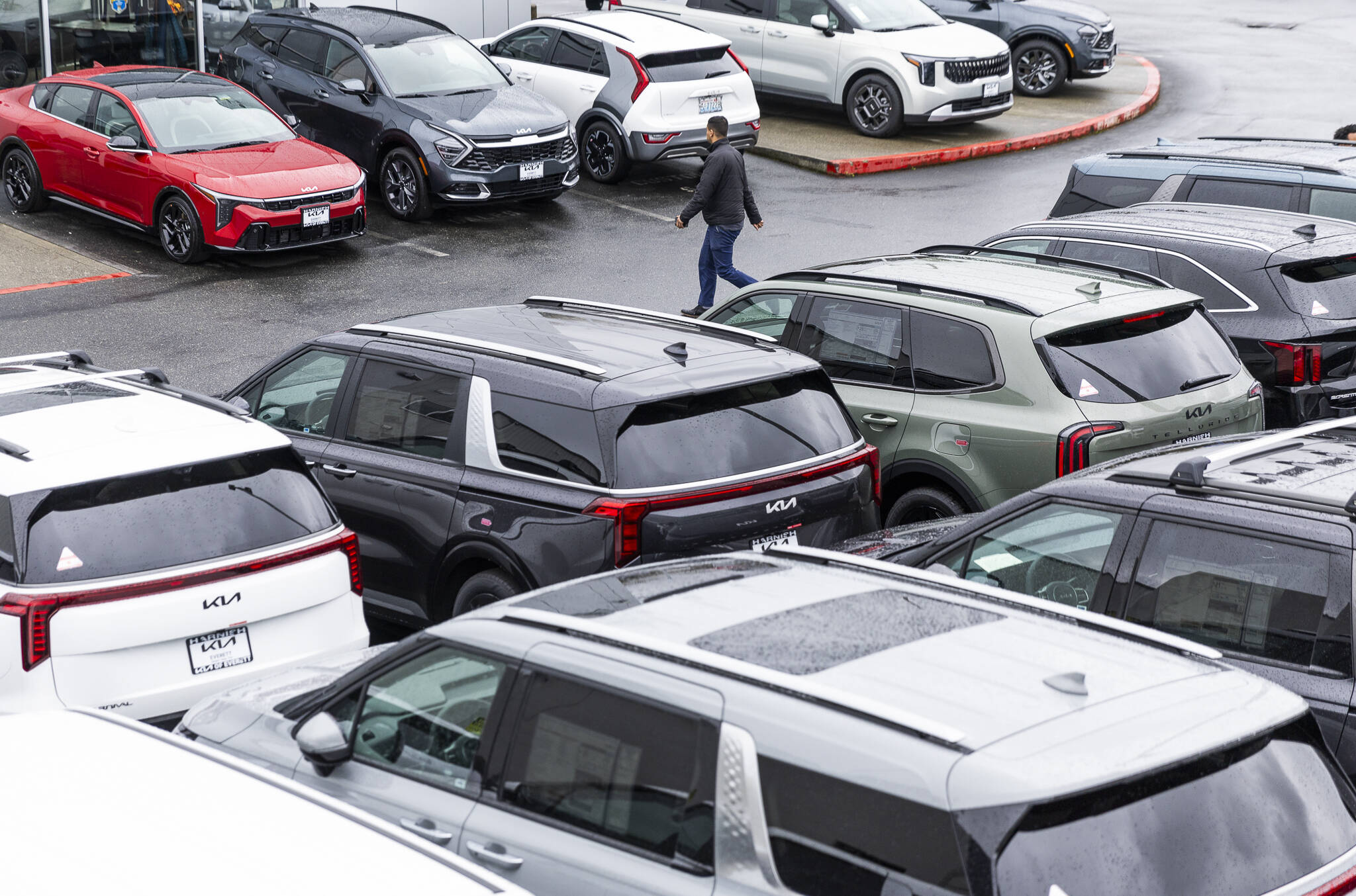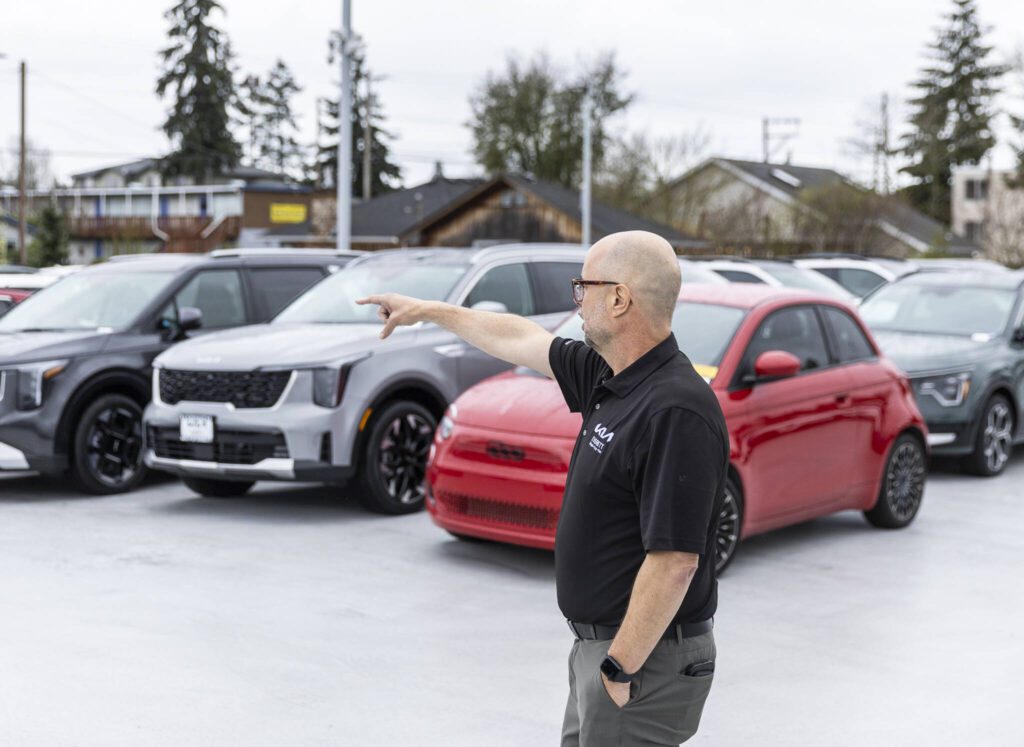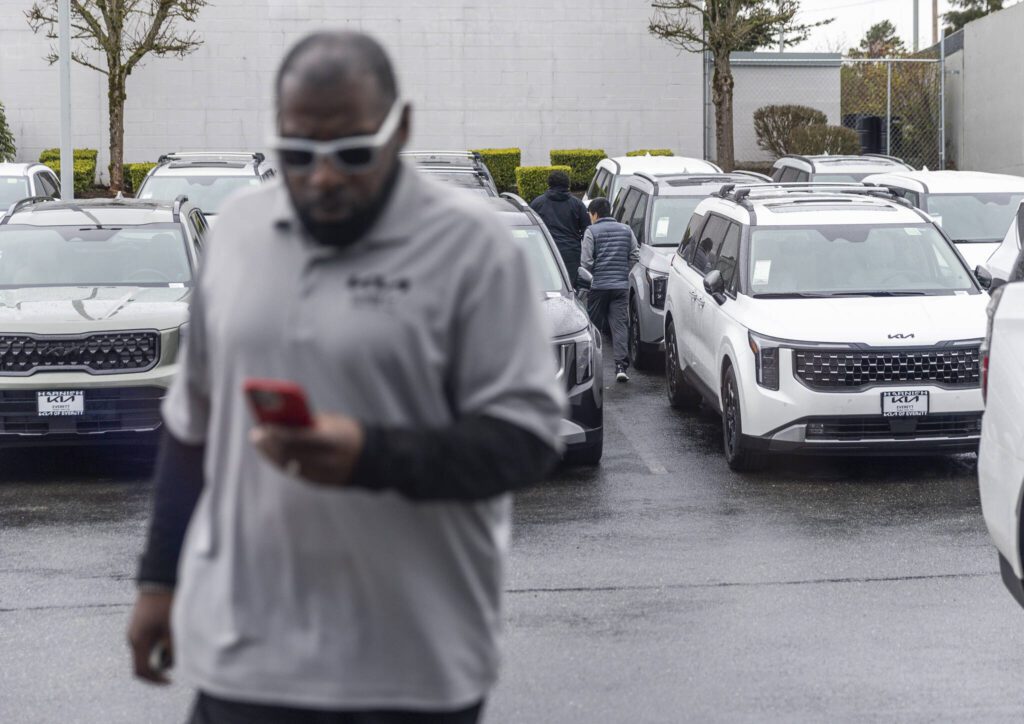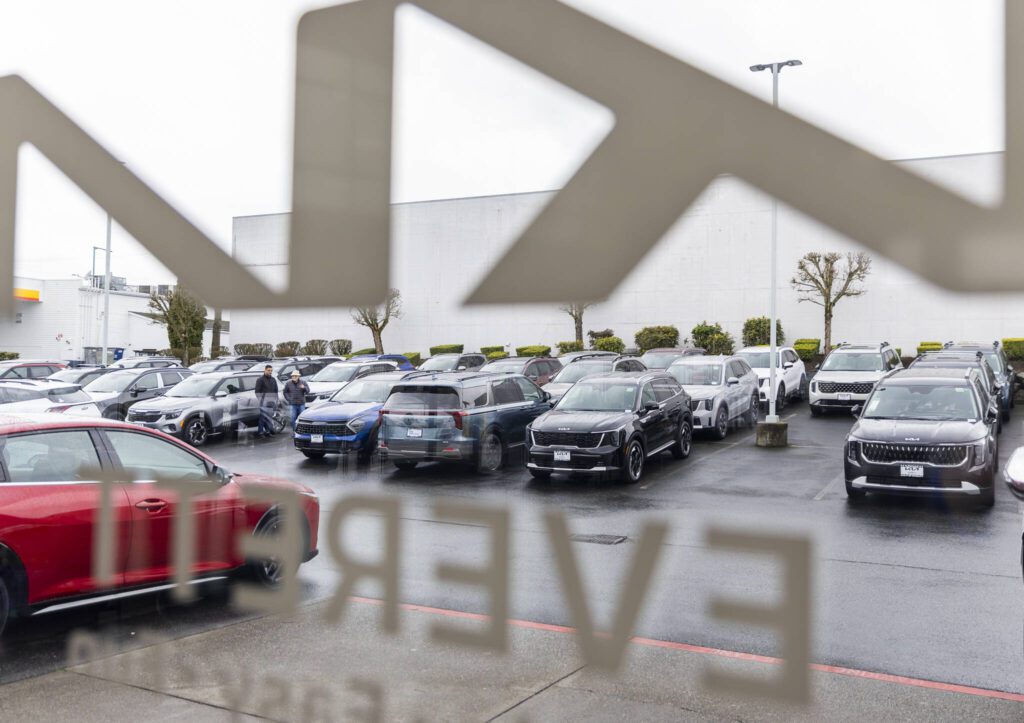EVERETT — Tony Sundberg likes that new car smell, but he’s purchasing a new vehicle a year earlier than he anticipated.
He’s afraid of a price hike of potentially thousands of dollars if he doesn’t.
“I wasn’t quite ready to do it, but the tariffs made me do it,” Sundberg said on Tuesday as he finished the sales paperwork on his new Kia Sportage at Kia of Everett. He was trading in his 2023 Sportage with only 24,000 miles.
The retired purchasing agent from Edmonds is one of dozens of additional customers that the Everett Kia dealer has seen over the last few days, said Erik Butler, the dealer’s general manager. All because of tariffs on automobiles announced by President Donald Trump on March 26.
On that day, Trump announced a 25% tariff will be imposed on foreign-made autos. On Wednesday, the day the White House is billing as “Liberation Day,” Trump is expected to announce a wide-ranging tariffs on foreign-made goods, including a 25% tariff on imported vehicles. The U.S. could be collecting additional tariffs as soon as Thursday.
The 25% auto tariff also applies to key automobile parts, like transmissions, engines, power train parts and electrical components.
Domestic automakers aren’t immune to the tariffs because they make some of their models overseas.
Nationally, dealers are reporting increased sales before additional tariffs take effect.
In Snohomish County, it’s been no different for dealers like Kia of Everett.
This past weekend was the busiest of the year at Kia of Everett with around 100 people shopping on Saturday and Sunday for vehicles — double the normal number, Butler said.
The Everett dealership sold 40 vehicles, doubled the number of automobiles sold in a typical weekend, he said.
“All the customers are talking about the tariffs,” Butler said.
Tariffs won’t have an immediate effect because dealers have an inventory of vehicles, that are currently on their lot or awaiting delivery but have already cleared customs.
At Kia of Everett, the vehicle backlog is 300, Butler said.
Ultimately, the backlog will end.
What happens then?
Tariff increases could be “highly disruptive” to North American vehicle production, Cox Automobile Chief Economist Jonathan Smoke said during a sales forecast call last week. He added that consumers may feel a disruption by mid-April as some companies may raise prices.
Butler said he hopes KIA will offer dealers incentives that it can offer to consumers.
He said the company had been offering incentives of up to $12,000 on financed vehicles and $17,000 on leased vehicles on its electric EV-6 and EV-9 models, though both are sold out.
Butler said that when the new models come out, they could become more popular because they are now being made at a new KIA factory in Georgia.
He said dealers don’t have much room to offer price breaks because the profit on an individual vehicle is often in the hundreds, not the thousands.
Sundberg said he originally planned to trade in his Sportage in 2026 but was worried about a “hefty increase” because of the Trump tariffs.
Sundberg said he doesn’t think he could have avoided the tariffs if he switched to an American car manufacturer.
“I don’t think there’s a car made in America that’s totally assembled here,” he said.
Saugata Halder was at the Kia dealer on Tuesday, looking for a new vehicle. The Amazon software engineer moved to the U.S. late last year from the United Arab Emirates and, at that time, purchased a used Toyota Camry with 170,000 miles.
He was going to wait a few more months for a new car but decided he must act quickly.
“I want to buy before the prices to go up,” he said.
Halder said he thinks he has a little time, but not that much.
He plans to visit several more dealers over the next week before making a final decision.
Randy Diamond: 425-339-3097; randy.diamond@heraldnet.com.
Talk to us
> Give us your news tips.
> Send us a letter to the editor.
> More Herald contact information.




























